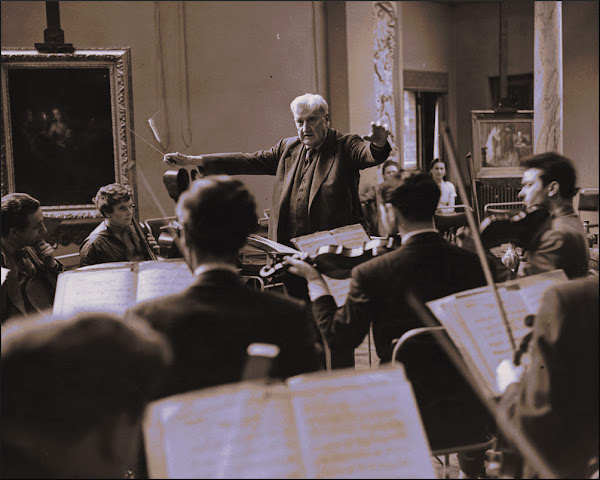Who is this Worgan Williams?
During my time at EMI commissioning power was split between the central International Classical Division - where I worked - and local operating companies. The International Classical Division (ICD) controlled the big budgets needed for the international stars such as Herbert von Karajan, Mstislav Rostropovich, André Previn and Riccardo Muti. While the local companies had smaller budgets for recording projects with local musicians: for instance EMI UK commissioned Sir Adrian Boult's recordings from their local budget. The ICD had to propose a major recording projects to the local operating companies around the world who would give their sales estimate. Only if the global sales forecasts recovered the cost of the proposed project would it be green-lighted.
This democratic but flawed A & R approval process was originally put in place by EMI's senior management to curb Walter Legge's penchant for recording music he was passionate about but which the record buying public was somewhat less passionate about. At one ICD conference I attended in the late 1970s a recording of a Vaughan Williams symphony was proposed for international release. This prompted a representative from EMI Electrola - the German operating company - to ask "Who is this Worgan Williams". That recording was never made, despite Karajan having recorded the Tallis Fantasia in 1952, presumably at the prompting of Legge.
2022 brings the 150th anniversary of Ralph Vaughan William's birth. It remains a complete mystery as to why outside the UK the question of 'Who is Vaughan Williams?' still needs answering. RVW's anniversary year offers the classical music industry a unique opportunity to answer this question. Very few other composers can offer the Classic FM appeal of The Lark Ascending and Tallis Fantasia, the abrasiveness of the Sixth Symphony, the filmic allure of Sinfonia Antartica, the mysticism of A Pilgrim's Progress, and the serenity of the Bunyan-inspired Fifth Symphony . Let's hope that The Lark Ascending is not played to death in the coming year. Because there is much more to Vaughan Williams than that solitary bird, and in 2022 the classical industry has a rare opportunity to showcase the unique breadth of his genius and give 'Worgan Williams' his rightful place in global classical music.










Comments